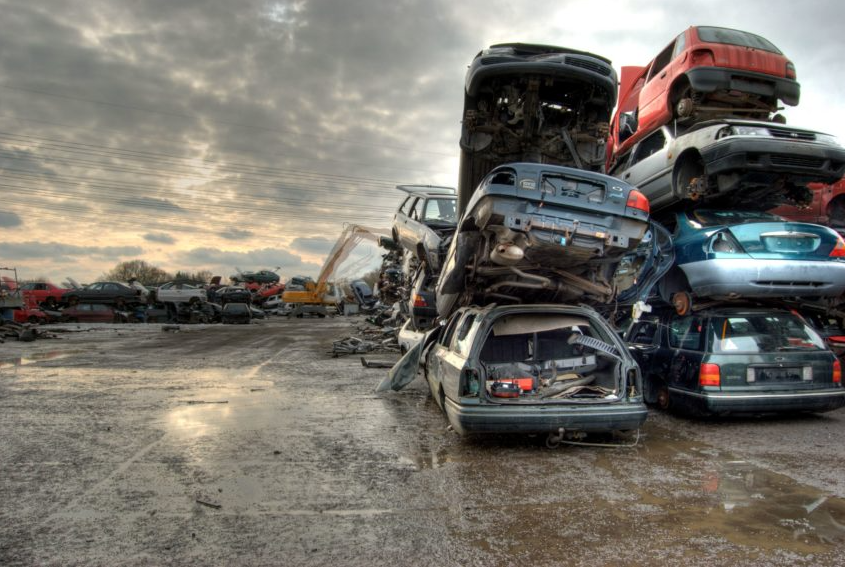Introduction:
The prospect of selling a damaged car may seem daunting, but it’s a viable and often lucrative option for vehicle owners facing the aftermath of an accident or unexpected breakdown. In this comprehensive guide, we’ll navigate through the process of sell damaged car in Sydney, exploring the reasons to consider this option, potential avenues for selling, and addressing common queries through FAQs.
Why Sell a Damaged Car? The Rationale Behind the Decision
-
Financial Prudence:
Repairing a severely damaged car can be an expensive undertaking. In many cases, the cost of repairs may exceed the actual value of the vehicle. Selling a damaged car allows owners to make a financially prudent decision by avoiding hefty repair bills.
-
Time and Effort Savings:
Repairing a damaged car not only involves financial investment but also requires time and effort to coordinate repairs, find suitable parts, and deal with repair shops. Selling the damaged car eliminates the need for extensive time and effort, providing a more efficient solution.
-
Insurance Payout:
If the damage to your car is a result of an accident and you have comprehensive insurance coverage, selling the damaged vehicle can be an attractive option. Insurance payouts can provide a lump sum that can be used towards acquiring a replacement vehicle.
-
Environmental Considerations:
Opting to sell a damaged car aligns with environmental considerations. Salvaging and recycling damaged vehicles contribute to sustainable practices by reusing valuable components and minimizing the environmental impact of scrapping.
Avenues for Selling a Damaged Car: Making an Informed Choice
-
Sell to Auto Salvage Yards:
Auto salvage yards specialize in buying damaged and non-functional vehicles. They assess the value of salvageable parts, offering a price based on the car’s salvageable components. This option is convenient and ensures responsible disposal of the vehicle.
-
Online Platforms:
Utilize online platforms such as auction websites, classified ads, or specialized platforms for selling damaged cars. These platforms connect sellers with potential buyers, providing a broader market for damaged vehicles. However, this option may require additional efforts in terms of listing and negotiation.
-
Local Junkyards:
Local junkyards or scrapyards may purchase damaged cars for their scrap metal value. While this option may not offer the highest return, it provides a quick and straightforward solution for getting rid of a damaged vehicle.
-
Private Buyers:
In some cases, private buyers may be interested in purchasing damaged cars for various reasons, such as DIY projects or rebuilding. Selling to a private buyer may involve more negotiation and effort, but it can result in a higher sale price.
Navigating the Selling Process: Tips for Success
-
Accurate Assessment:
Conduct a thorough assessment of the damage to provide accurate information to potential buyers. Be transparent about the extent of the damage, as this builds trust and ensures a smoother selling process.
-
Gather Documentation:
Compile all relevant documentation, including the car title, maintenance records, and any insurance information. Having these documents readily available streamlines the selling process and instills confidence in buyers.
-
Set a Realistic Price:
Determine a realistic and fair selling price for your damaged car. Consider factors such as the extent of damage, market value for salvageable parts, and the overall condition of the vehicle. Pricing competitively attracts potential buyers.
-
Negotiate Responsibly:
Be open to negotiation but have a bottom line in mind. Understand the value of your sell my scrap car for cash and be willing to walk away from offers that do not align with a fair market value.
Conclusion: Turning the Page on Your Damaged Car Journey
Selling a damaged car can be a pragmatic and financially sound decision for vehicle owners facing the aftermath of accidents or unforeseen breakdowns. The key lies in understanding the options available, making informed choices, and navigating the process with transparency. By considering factors such as financial prudence, time savings, and environmental impact, owners can turn the page on their damaged car journey and embark on a path that aligns with their priorities.
FAQs: Navigating Common Queries on Selling Damaged Cars
-
Q: Can I sell a car that has been declared a total loss by my insurance company?
A: Yes, you can sell a car that has been declared a total loss. In fact, selling a totaled car is a common practice, and you can explore options with auto salvage yards, online platforms, or private buyers.
-
Q: How do salvage yards determine the value of a damaged car?
A: Salvage yards assess the value of a damaged car based on the salvageable components, including usable parts, metal scrap value, and overall market demand for specific components. They typically offer a price reflecting the salvage value.
-
Q: Are there specific online platforms for selling damaged cars?
A: Yes, several online platforms cater specifically to selling damaged cars. Websites such as Copart, IAAI, and Salvagebid facilitate auctions for damaged vehicles, connecting sellers with buyers interested in salvage or repairable cars.
-
Q: What documents do I need to sell a damaged car?
A: Essential documents for selling a damaged car include the car title, maintenance records, and any insurance information related to the damage. Having these documents readily available streamlines the selling process.
-
Q: Can I sell a car that is not drivable?
A: Yes, you can sell a car that is not drivable. Salvage yards and junkyards specialize in purchasing non-functional vehicles, and private buyers interested in restoration projects may also consider buying a car that is not drivable.



